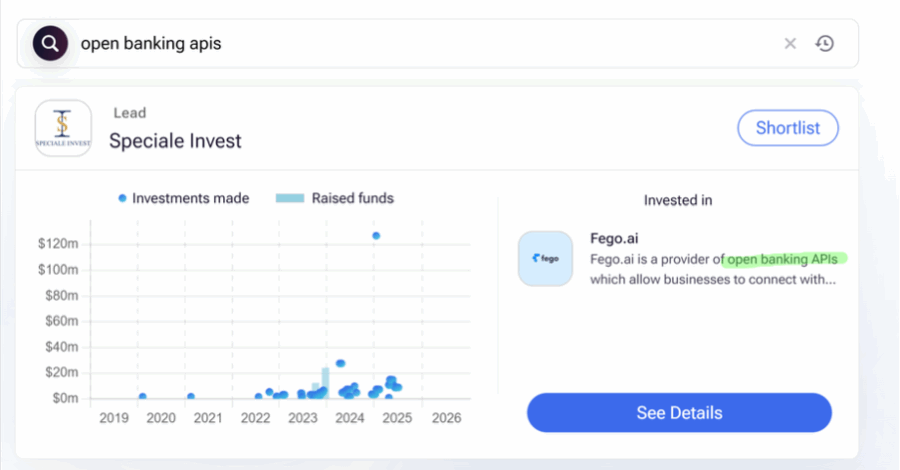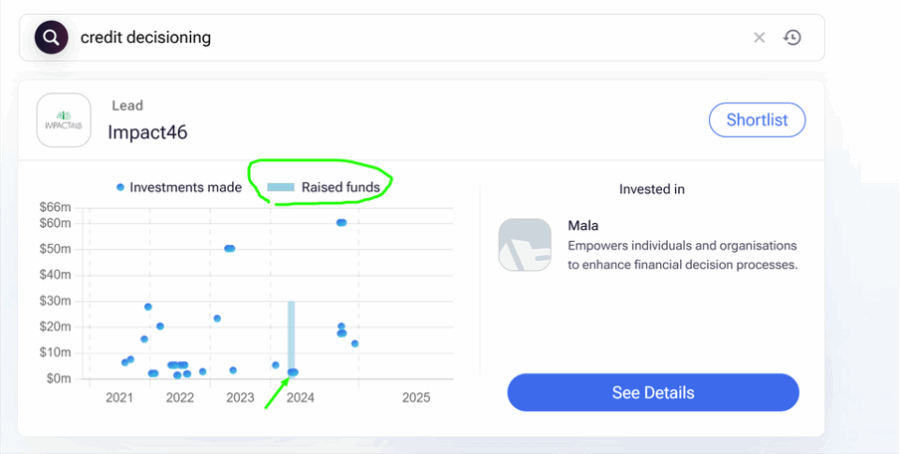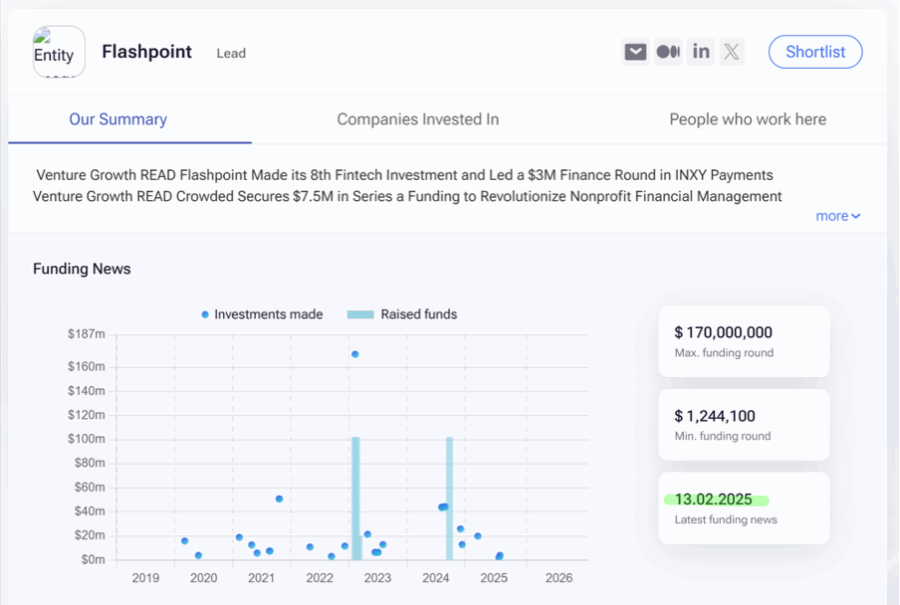Crypto, Code, and Kilts: Scotland’s FinTechs Eye the Metaverse
The metaverse is not the internet extended online; it’s a virtual, always-present universe where users can engage and with other users, and with the world, in real time. Decentraland, The Sandbox, and HTC Viverse are some of the earliest innovators, providing virtual worlds for social interaction, gaming, business, and entertainment. Platforms are growing exponentially, with virtual real estate markets alone reaching $1.4 billion in 2022, 180% year-on-year.
These virtual assets fund this new metaverse economy. The user payments in these areas need to be preceded by secure, scalable, and efficient financial services. Scottish fintech firms can bridge this gap at this point.
Why Scottish FinTechs Ought to Take Notice
Scotland is a natural candidate for fintech metaverse leadership for several reasons:
- Innovation heritage in finance and technology (host to the Bank of Scotland, one of the oldest in the world).
- Edinburgh and Glasgow as global fintech hubs.
- UK pro-business policies and regulatory sandboxing possibilities.
- Solid academic foundation facilitating blockchain, AI, and quantum computing R&D.
Harnessing these strengths, Scottish fintechs can offer the infrastructure to secure, grow, and make the metaverse economy accessible.
Scottish Fintech Opportunities in the Metaverse
- Facilitating Seamless Payments
Metaverse legacy payment systems also break down due to latency, security, and interoperability. Scottish fintechs can create and deploy metaverse-native payment solutions. Some of them are:
- Cryptocurrency Payment Gateways: Enabling users to pay in cryptos like Bitcoin, Ethereum, or stablecoins.
- NFT-Based Transactions: Enabling users to buy and sell digital assets using NFT marketplaces.
- Cross-Platform Payment Systems: Developing cross-platform transaction solutions.
With blockchain technology, such payment systems are able to provide transparency, security, and efficiency in the midst of the virtual economy’s inherent challenges.
- Digital Asset Management
The boom of the digital asset metaverse demands strong management solutions. Scottish fintechs can create platforms upon which users can store their digital assets securely, track, and manage them, for instance:
- Digital Wallets: Empowering users to be able to benefit from secure storage of cryptocurrencies and NFTs.
- Asset Tracking Tools: Providing information and insights into the value and performance of digital assets.
- Portfolio Management Services: Helping people to diversify and manage their portfolios of digital assets.
These services can make people experts in decision-making and achieving optimum advantages from their digital assets.
- Virtual Financial Services
With the maturity of the metaverse comes the maturity of the need for conventional financial services within such virtual environments. Scottish fintechs can be at the forefront in being innovative by providing such services as:
- Virtual Banking: Virtual branch establishment through which consumers can access banking services in the form of loans, savings accounts, and advice on finances.
- Insurance Products: Creating insurance products specific to the virtual environment and assets.
- Investment Platforms: Establishing venues through which users can invest in metaverse property, digital artwork, and other assets of the metaverse.
By incorporating these services into the metaverse, Scottish fintechs will connect mainstream finance to the virtual economy.
Strategic Benefits of Scottish Fintechs
- Organic Financial Ecosystem
Scotland has a well-established financial services industry with Edinburgh and Glasgow being key hubs for banks, insurers, and investment companies. This established environment is perfectly suited to allow fintechs to grow and thrive in the metaverse.
- Favorable Regulatory Environment
UK regulatory environment provides reassurance and relief to fintech firms, especially those dealing with new-generation technologies such as blockchain and cryptocurrency. Such a facilitative climate will assist in smoothening the spread and roll-out of financial products derived from the metaverse.
- Talent and Innovation Access
Scotland has a robust tech community and top-class universities, adequate access to leading talent, and frontier-level research. Access to the latter pool is most critical in creating innovative solutions fit for the metaverse.
- AML, KYC-as-a-Service, and Compliance
Meta-mode operations pose significant regulatory issues, particularly issues of money laundering, identity theft, and jurisdictional compliance.
Scottish fintechs with regtech experience can provide:
- AI-driven transaction monitoring platforms for virtual economies.
- Avatar-based KYC services using facial recognition or voice biometrics.
- Decentralized identity systems that are GDPR- and UK data protection legislation compliant.
Fintech providers such as Symphonic Software (policy-based access control) or The ID Co. (financial identity specialists) could leverage their products into this environment.
- Decentralized Finance (DeFi) and DAOs
Decentralized finance—DeFi—is one of the pillars of the metaverse ecosystem. It allows trustless, peer-to-peer financial systems without brokers or banks.
Scottish fintechs can:
- Develop DeFi protocols for lending, borrowing, and staking in metaverse tokens.
- Develop DAO governance platforms for controlling community-owned financial institutions.
- Provide DeFi risk analytics platforms to enable users to evaluate protocol safety.
By connecting with Ethereum-based DeFi or Layer-2s such as Arbitrum and Optimism, these businesses are able to tap into an emerging global phenomenon while taking Scottish fintech IP to the world.
Challenges and Considerations
- Regulatory Uncertainty
The metaverse is ubiquitous, frequently making legacy finance regulation useless. Scottish fintechs need to navigate this intricate regulatory environment to stay compliant and risk-free.
- Security and Privacy Issues
The virtual metaverse online environment is susceptible to cyber attack. Fintechs need to have proper security measures that protect user information as well as financial transactions.
- User Adoption
User adoption can destroy or create financial services in the metaverse. Scottish fintechs need to invest in user education and offer interfaces that are simple to use so that they can enable high usage.
Looking Ahead: The Next Five Years
As the metaverse transitions from experimental to critical, fintech will transition from backend utility to frontline enabler of digital life.
We can expect to see:
- A virtual Scottish stock exchange for digital assets.
- Interoperable digital IDs created in Scotland are used worldwide.
- Tokenized whisky or property exchanged within metaverse marketplaces.
- Avatar-based banking is linked to Web3 wallets and VR headsets.
By 2030, metaverse financial services might be a multibillion-pound industry, with Scotland positioned as a global hub for this emerging economy.
Conclusion
The metaverse represents a new and exhilarating frontier for the digital economy, with unprecedented scope for innovation in financial services. Scottish fintechs, in their cutting-edge capability and nurturing environment, are best placed to spearhead the progression of payment infrastructure capability, digital asset management ability, and virtual financial services fitting for this new virtual world. By embracing these opportunities, Scottish fintechs can spearhead the construction of the metaverse’s finance future.
Author’s Bio:

Druti Banerjee
Content Writer
LinkedIn: Druti Banerjee
Druti Banerjee is a storyteller at heart following the precision of research with the art of words. Druti, a content writer for The Insight Partners, combines creative flair with in-depth research to create words that bewitch. She approaches every piece she does with an academic yet approachable perspective, having a background in English Literature and Journalism.
Beyond the screen, Druti is a passionate art enthusiast whose love of creativity is rooted in the creations of great artists such as Vincent Van Gogh. An avid reader, dancer, and ever-ready to pen down thoughts, always up for binge-watching and chai on repeat. Preacher of the following vision by Vincent Van Gogh, “What is done in love, is done well”, draws inspiration from the realms of art, history, and storytelling to bring to life via writing the rich hues of culture and the complexity of human expression. The aim is to capture the nuance of the human experience—one carefully chosen word at a time.
Mind the Gap: Bridging the UK’s pension divide with digital solutions
The UK pensions landscape is at a crossroads: with 38% of the working-age population under-saving for retirement and 52% of people accessing their pensions without adequate advice, the risk of poor financial outcomes are at an all-time high. Yet, the market is set for huge growth, with defined contribution pension assets projected to explode to £800 billion by 2030.
This is not a new problem, and despite well-intentioned efforts like auto-enrollment from policy-makers and new digital products from providers, there is still a fundamental disconnect; customers lack engagement and understanding in later life planning and financial outcomes.
Solving this challenge presents a significant growth opportunity for providers, but to do so needs a design-led approach focused on deeply understanding your customers through three core elements: Empathy, Engagement and Empowerment. Technology – and particularly AI – of course plays a crucial role, but doesn’t replace the need for empowered advisers. The future will be hybrid: a combination of traditional digital interfaces, agentic AI, and human touchpoints to create hyper-personalised experiences based on an individual’s aspirations, circumstances and preferences.
This whitepaper, drawing on digital partner CreateFuture‘s decades-long experience in the Wealth & Pensions sector, provides a compelling vision for the future of pensions engagement, outlining how a hybrid approach leveraging digital innovation, AI, and empowered advisors can create truly customer-centric experiences and unlock a more secure future for savers.
Fundraising? Here’s why you should optimise Quality Outreach Over Quantity
If you’re a founder looking for investment, you have a dilemma.
How much time to invest in identifying and building connections with investors, or to invest in immediate business traction.
Daniel Sawko, co-founder of shipshape.vc, the free to use investment search engine, shares his tips on how to maximise your chances of success.
Focus on Relationship-Building
When raising capital, a common misconception is that contacting more investors improves your chances of success.
This “spray and pray” approach—sending generic messages to numerous potential investors—has gained popularity with the rise of mass emailing tools.
However, analysis by Adam Shuaib, a Data Scientist and General Partner at Episode One Ventures reveals that this strategy is suboptimal.
Beyond a certain point, there’s no increase in the chance of success for the number of investors you contact. Instead, founders should focus on building meaningful relationships with carefully selected investors.

Research Potential Investors
The challenge lies in identifying which investors deserve your attention, as this data is often disparate and poorly organised. This is one of the problems we’re solving with shipshape.vc.
Shipshape.vc aggregates data from over 25,000 funds, identifying the types of companies that they are investing in and the individuals that work at those funds. This enables founders to significantly cut down on the research time it takes to identify relevant investors.
Identify Investors who Understand Your Niche
Beyond identifying investors who focus on, for example, Fintech, determine if they understand your specific niche. For example, if you’re developing credit decisioning technology using open banking data, look for investors with experience in related domains.

Be Aware of the Fund Lifecycle
Most venture funds operate on a lifecycle, say of 10 years. Funds deploy capital primarily in their early years to ensure returns before the fund closes. Recently raised funds are more likely to be in an active “planting phase,” while those 5+ years into their lifecycle may be in “harvesting mode”—focusing on existing portfolio companies rather than new opportunities.

Examine Recent Investment Activity
Monitor when funds last deployed capital. A fund that hasn’t invested in the past three to six months might lack fresh capital or be moving to a different phase of its lifecycle.

Target the Right Team Members
Research which individuals at the fund understand your space. See if you can deduce from the team descriptions on a fund’s website, their social media, or from a search engine, like shipshape.vc (which will often include team descriptions), with whom at the fund you should be building a relationship.
Approaching someone with the wrong specialisation signals poor research—and how you sell your equity reflects how you sell your product!
Don’t Present Investors with a Transaction aiming at an immediate “Yes” or “No”
Fundraising is not about getting an immediate yes or no. Your company is not a simple product and ‘sales discovery’ applies for potential purchasers of your equity.
Investors will almost always need multiple data points about your company over time before making decisions. The saying of “investors invest in lines, not dots” is real.
Each interaction and update (in-person or via other mediums) helps to build a trendline that either increases or decreases confidence in your venture.
Prioritise Depth over Breadth and Quality over Quantity
This approach requires depth rather than breadth. Similar to bulk mail outreach for selling products or services, founders will struggle to create sufficient data points and depth of relationship with hundreds of investors simultaneously via bulk outreach.
Focus on building relationships with a few dozen carefully selected investors you have determined demonstrate genuine interest in your sector and stage, have dry powder (e.g. via a recent fundraise for the fund) and identify those that can potentially lead a round.
By narrowing your funnel and prioritising quality connections over quantity, you’ll optimise your fundraising process and increase your chances of finding the right investment partners who truly understand and value what you’re building.
Want to share your thoughts?
If you have a question or further thoughts on this article – feel free to reach out to Daniel Sawko on LinkedIn!

Top 3 Strategies for Media and Communications in Fintech
Over the past three years we have seen significant changes, within the fintech sector, in how companies engage with investors, stakeholders, and customers – particularly in their use of digital communication. Through our partnerships, such as the London Stock Exchange, we have witnessed a growing trend toward high-quality virtual and hybrid events. These formats, which combine livestreaming, on-demand content and video conferencing, are becoming standard tools for fintech firms looking for greater transparency whilst maintaining global reach. Companies, now, have more ways than ever to see – and show – themselves through multimedia. To unpack this, we’ll look at three key areas.
Live Streaming – it’s a game changer
In the financial sector, where precision and trust are everything, live streaming may feel like a bold move. The idea of broadcasting high-stakes communications in real-time can understandably raise concerns what if something goes wrong? What if a question catches the C-suite off guard?
But here’s the truth: live streaming isn’t a risk, it’s an opportunity.
When used effectively, live streaming offers an unparalleled level of transparency and authenticity. Whether it’s half-year or full-year results, investor updates, or a capital markets day, going live enables executive leadership to speak directly to stakeholders, unfiltered and in the moment.
This format invites questions, promotes real-time engagement, and fosters trust in a way that pre-recorded or written statements simply can’t match. Stakeholders appreciate being part of the conversation, not just recipients of information. The result? A stronger, more connected relationship between companies and the audiences that matter most.
Pre-Recorded Content – Say it once, use it twice (or ten times).
While live streaming brings immediacy and authenticity, pre-recorded content opens the door to precision, polish, and depth.
For Fintech companies and C-suite executives navigating complex topics, pre-recording offers the ideal environment to deliver clear, considered messages with confidence. Whether it’s a fireside chat, product announcement, or strategic update,
this format allows for multiple takes, seamless editing, and visual enhancements ensuring every word lands exactly as intended.
But the value of pre-recorded content goes beyond production quality.
It’s a powerful tool for repurposing and reach. A single piece can be tailored to different audiences from institutional investors to internal teams while still maintaining time sensitivity. Fireside chats are an excellent alternative to traditional presentation formats. They invite discussion, showcase leadership personality, and provide space for more nuanced opinions and analysis.
Plus, pairing pre-recorded content with a live Q&A session can offer the best of both worlds: the confidence of a polished presentation and the connection of real-time engagement.
For forward-thinking companies, it’s not just about choosing between live or pre-recorded it’s about using both strategically to elevate communication.
Portfolio & Brand Content: Capture Their Imagination
In today’s landscape, the C-suite isn’t just thinking in slides they’re thinking in stories. The most impactful leaders are turning to video as a powerful tool to bring their ideas to life, not just explain them.
Whether it’s showcasing a fintech portfolio, launching a new product, or highlighting future growth areas, video helps translate abstract concepts into compelling, visual narratives. It captures imagination, sparks curiosity, and most importantly sticks. Audiences remember what they can see, hear, and feel. And in boardrooms or investor meetings where attention is limited, a well-crafted piece of brand content can be the difference between passive interest and real engagement.
But this isn’t just about external storytelling. Internally, portfolio and brand videos help teams align behind a shared vision. When introducing new business verticals or rolling out strategic updates, video can communicate ideas clearly, quickly, and with emotional resonance. It helps employees see where the company is going and why it matters.
In short, videos don’t just inform they inspire. They turn complex strategies into memorable stories and make big ideas feel tangible. In a world full of noise, that’s how you make your message land.
At the heart of it, fintech is about innovation and your communications should be too. Whether you’re streaming live, crafting polished pre-records, or telling stories through brand content, the goal is the same: to connect, to clarify, and to captivate.
These tools aren’t just trends they’re opportunities. When used well, they can elevate your message, engage your stakeholders, and bring your boldest ideas to life.
So don’t be afraid to mix formats, try new approaches, and think beyond the slide deck. The future of FinTech communication is already here and it’s more dynamic, more visual, and more human than ever.
Written by Ruairidh Duguid and Robbie Durham – CutAcross ™
Email:hello@cutacrossmedia.com
Photo by Pixabay: https://www.pexels.com/photo/black-camera-zoom-lens-in-close-photography-159442/
Accelerating Action: A Celebration of the FRIL Innovation to Address Financial Crime Programme
Welcome back to our spotlight series celebrating colleagues who are inspiring change and Accelerating Action across the technology sector. This month’s edition focusses on celebrating some of the inspirational colleagues who took part in our recent program of work under the 4th Financial Regulation Innovation Lab (FRIL) challenge – addressing financial crime.
Thank you to all who engaged with us across the programme, and to our spotlighted colleagues for contributing to this important campaign: Christine Sinclair, Skills Programme Director FRIL @ University of Strathclyde; Gill Green, Client Director @ Sopra Steria; Savannah Price, Founder & CEO @ Serene, and Roisin McCarthy, Founder & CEO @ Verifoxx.
Financial Regulation Innovation Lab (FRIL) – Recapping the progress made in the Financial Crime Programme 2025
The FRIL is an industry-led collaborative innovation and research programme with a focus in its 4th call on bringing together industry, regulators, innovators and academia to tackle financial crime and fraud. The challenge was centred around 5 industry led priority use cases and convened 15 Fintech entrepreneurs to work with regulators, academia and industry leaders to develop their innovative solutions. Across the programme, it was a privilege to work with inspirational colleagues across the cluster and we are excited to be celebrating their achievements in this blog.
Across the programme, BT has played a key role in driving collaboration and knowledge sharing across the cluster to tackle financial crime and fraud. This activity kicked off with the launch of the FRIL innovation programme at the BT offices, convening an audience of representatives from regulatory authorities, telco, academia and financial institutions. Continuing to build on this leadership, the BT team also hosted a collaborative podcast series, chaired by Charlotte Moir BT, offering an opportunity to hear from industry leaders across the FRIL – many of whom feature within the Accelerating Action campaign, to share knowledge and best practices in the fraud prevention sector.
“The FRIL is a great opportunity to innovate together to identify solutions”
Paul Taylor, MD Global Banking
Developing the Skills agenda through FRIL – Unlocking AI literacy potential
A key track of activity within the FRIL is skills development, led by our fantastic colleague Christine Sinclair, University of Strathclyde. Christine’s passion and commitment to progressing the skills agenda continues to inspire us to empower colleagues around us, and we are delighted to be sharing further details on the recent launch of the AI Skills Literacy Suite as part of the Women in Tech Campaign:
“AI is transforming the way we live and work at lightning speed, offering new opportunities and challenges – are you keeping up? Whether you’re just starting your AI journey, looking to deepen your expertise, or need a high-impact executive briefing, our AI Literacy programmes are designed to empower professionals at every level.
Unlock your AI potential with Strathclyde Business School by signing up today to one of our five comprehensive micro credentials to earn academic credits and future-proof your career. Find out more herehttps://bit.ly/FRILSkills_ SBS or contact sbs-fril@strath.ac.uk with any questions you may have.”
“Cross-industry collaboration really is key to help us stay ahead…its critical”
Charlotte Moir, Account Manager
We look forward to continuing to celebrate inspirational colleagues across this campaign and will be continuing to publish our monthly blog. If you would like to nominate a colleague to feature in our spotlight series, please reach out to
francesca.2.ritchie@bt.com
https://www.linkedin.com/in/francesca-ritchie-703325210


Why Community Financial Institutions Need an AI Operating System
The financial services landscape is at an inflection point. Recent industry data shows AI adoption by UK financial institutions doubled from 32% to 63% between 2023 and 2024, with over 80% of banking executives now viewing AI as a business opportunity. Yet this transformation is uneven – while large banks invest heavily in AI, community financial institutions often lack the infrastructure to compete.
Working with over 300 credit union staff across Scotland, we’ve observed a critical reality: small teams are spending much of their time manually maintaining, distributing, and correcting data – constraining their bandwidth for value-added activities. This isn’t just an efficiency problem; it’s preventing vital community institutions from achieving the economies of scale needed to compete with larger banks.
The U.S. market provides compelling evidence for how AI can level this playing field. Nearly 30% of U.S. community banks and credit unions plan to implement generative AI tools in 2025, with early adopters already seeing significant gains in operational efficiency and member service. Through innovators like Eltropy, even the smallest credit unions are using AI to handle routine queries, process documents, and personalise communications.
At Niovant, we’re bringing this transformation to the UK market. Our thesis is simple: semi-autonomous AI agents will fundamentally elevate productivity by eliminating routine work at scale, giving organisations back time for higher-value tasks. Our platform ingests raw data from core systems, structures it for AI agents, then triggers the actions and workflows that previously consumed staff time.
The Building Societies Association noted in 2024 that mutual lenders are actively exploring how AI can boost staff productivity and customer satisfaction “at scale – but reduce cost” in line with their values. We’re making this possible by building an operating system that helps financial institutions orchestrate AI automations while adapting to shifting goals, regulations, and member needs.
The future of financial services won’t be built on static software, but on adaptive AI systems that give organisations back their most precious resource: time. We’re building that future, starting with the institutions that need it most.
Please reach out to me at lewis@niovant.com to discuss collaboration.
I went to a Digital Banking conference and an AI event broke out!
The theme for June’s American Banker’s Digital Banking Summit was “Welcome to the Bank of the Future” – and in this case the “future” is artificial intelligence. Specifically, Generative AI (Gen AI) and how it can enhance aspects of various banking operations. One CIO keynote declared “The strategic risk of not using Gen AI is higher than the operational risks of using it”.
While Gen AI itself does not directly create new banking business opportunities, it does have potential to accelerate improvements to customer experience, product development and operating practices that support keeping and attracting depositors. In short, Gen AI is potentially a much quicker means of adapting to disruptive challenges and to improving operational productivity.
Speakers highlighted use-cases of Gen AI deployed or in development within banking. For example:
- Customer Care/Support
- Help customer care reps resolve customer issues more accurately and quickly. Using real-time speech-to text combined with Gen AI models, relevant guidelines and documentation can be automatically retrieved and displayed on customer care rep screens.
- Fraud Claim Routing
- Poor execution in handling fraud claims motivates depositors to switch banks. Time is critical to contain costs and allay customer fear. Gen AI models can assess fraud types based on customer answers about the problem, then accurately route the case to departments with relevant fraud detection and resolution expertise.
- Near Real Time Product Matching
- Gen AI enabled near-real-time customer insights can promote bank product offers more likely to relate to stated customer needs. value and customer share of wallet.
- Faster, higher quality Underwriting
- Using Gen AI to overlay specific customer needs and preferences within the decisions process could improve responsiveness without taking on more risk, thus winning more worthy loans from competitors.
Blockers to Gen AI adoption in banking:
- Gen AI Skill gaps. Huge money center banks have sizable technology teams. Smaller banks don’t.
- Data quality and accuracy for LLM development. The axiom Garbage In, Garbage Out holds true, and banks are particularly sensitive to erroneous results from AI models.
- In the fraud use case, concerns are that false flags could erode customer loyalty. While customers value alerts pertaining to potential fraud, they do not want overly sensitive AI models freezing them out of their bank accounts.
- Avoiding bias within the LLMs that could result in a negative customer experience for some customers and expose banks to other liabilities.
Aside from AI, the conference underscored common pain points facing traditional bankers in the highly competitive, dynamic US market:
- Customer attraction, retention and deposit growth – With over 10,000 banks and credit unions, customers have so many to choose from; how can banks differentiate and drive loyalty?
- Fraud – Cost of fraud is increasing 25% per year, with half of all banks reporting zero to moderate confidence that they can keep pace with current and emerging threats – all which impact customer satisfaction.
- Managing transformation to enhance value, retention, and attracting younger depositors – The balancing act of building new user experience and functionality to retain/attract customers while maintaining decades old backend systems.
SDI works with Scottish fintechs and technology companies to support their international growth ambitions. If you are considering growth in the US market we would love to have a conversation.

Bob Fogarty, VP Business & Trade Development, SDI
Please contact:
- Bob Fogarty, Boston (robert.fogary@scotent.co.uk)
- John Fritz, Silicon Valley (john.fritz@scotent.co.uk)
- Anne Hilarion, Scotland (anne.hilarion@scotent.co.uk
A Guide for MiCA sustainability disclosures for cryptoassets
Scottish Fintech Company, Zumo wrote a very detailed guide on the implications of the Markets in Crypto-Assets Regulation (MICA) and its sustainability disclosure requirements for the crypto industry. The central idea is that MICA’s new regulations will significantly impact how cryptoassets are reported, particularly concerning their environmental sustainability.
Key takeaways from the article begin by explaining;
- The MICA framework, established by the European Union, aimed at creating a unified regulatory environment for cryptoassets. This regulation addresses issues such as market integrity, consumer protection, and the environmental impact of digital currencies.
- MICA mandates that cryptoasset service providers must disclose detailed information about the sustainability of their operations. This includes the energy consumption and carbon footprint associated with the production and use of cryptoassets. The article highlights that these disclosures are crucial for fostering transparency and accountability in the crypto sector.
- The challenges that crypto firms may face in complying with MICA’s sustainability requirements, including the technical difficulty of measuring energy consumption accurately, the cost of compliance, and the need for standardised reporting methods. Zumo Tech emphasises that while these hurdles are significant, they are essential for the long-term viability of the industry.
- Zumo Tech outlines the broader implications of MICA on the crypto industry. The regulation is expected to drive innovation towards more energy-efficient technologies and practices. It could also influence investor behaviour, as greater transparency may attract environmentally conscious investors. The article suggests that, in the long run, these changes could lead to a more sustainable and resilient crypto ecosystem.
The guide written by Zumo provides a comprehensive overview of MICA’s sustainability disclosure requirements and their potential impact on the crypto industry. The regulation will enhance transparency and drive sustainability, but it presents significant compliance challenges.
To read the full guide, click the link here.
Accelerating Action: Enabling Female Leadership
Welcome back to our spotlight series celebrating colleagues who are inspiring change and Accelerating Action across the technology sector. This month’s edition focusses on female leadership and the enhancement of progression opportunities.
International Women’s Day 2025
For every 115 UK tech roles only one will be filled by a woman, thus revealing a significant underrepresentation in the sector and huge loss given the benefits for financial performance and innovation generated from gender diversity. This is further illustrated by the fact that although women make up nearly half of the overall workforce, only 24% of the UK tech force is female.
These barriers in tech result in major difficulties for promotion and career growth for women in the sphere. In fact, a 2022 report from McKinsey found that only 52 women are promoted to manager for every 100 men in the tech industry. This figure is surprising considering inclusive environments mean career advancement are significantly more likely for both men (15%) and women (61%).
BT Group and FinTech Scotland are committed to championing female progression and recognise that inclusion and diversity is critical to growth.
BT Group Celebrations
This year, BT Group are choosing to focus on the theme of “Remarkable Women” to highlight the inspirational and innovative work of many talented female colleges within BT and across various industries.
BT Group are passionate about ensuring women have the skills and tools to move into the tech sector and advance their careers. For instance, BT’s Passport scheme and ‘three together and two wherever’ encourages flexibility in the workforce by allowing those who need it, to work from home. This inclusive scheme acknowledges familial responsibilities, enhancing opportunities and increasing diversity in the workplace.
BT works to inspire and encourage women to enter the Telco sector, teaming with charities including CodeFirstGirls and Black Girls Tech Summit to empower women and help them stay ahead in a competitive industry. BT Group’s Returner initiative supports women to re-enter the workforce, recognising the unique hurdles career returners face. The program is designed to provide mentorship, training and hands-on experience to help individuals regain confidence and thrive in their careers (Flexa., 2024).
Fiona Vines, Chief Inclusion, Equity & Diversity officer at BT Group, is a key example of a woman who has reached a successful leadership position despite facing unexpected challenges and prejudice in a very male dominated industry. Fiona is a keen feminist and an inspiration, particularly to women who are looking to grow their career and have a family at the same time. Another notable example is Claire Gillies, CEO of Consumer, who is passionate about supporting women and advancing female leadership by being apart of the International Women’s Forum.
Fintech Scotland Celebrations
Exceptional leadership at FinTech Scotland was highlighted in the Innovate Finance Women In Fintech Powerlist in March 2025 with both its CEO, Nicola Anderson and its Research & Innovation Programme Manager, Lauren Cassell making it to the list.
Nicola appeared in the 45 Standout List recognising women who have made an incredible, lasting impact in fintech, going the extra mile to enable sustainable change.
Lauren was named amongst the Rising Stars for her amazing contribution to fintech innovation through her work at FinTech Scotland’s Financial Regulation Innovation Lab and for the FCA’s Innovation Lab.
Allison Kirkby, CEO, BT Group

Allison Kirkby is a pioneer in the world of business, breaking barriers and traditional perceptions. BT Groups’ first female CEO, started off as a Chartered Accountant Apprenticeship. Described as a “proven leader, with deep sector experience” she is already immersing herself in the business, transforming the organisation by cutting costs, restructuring areas and finding saleable assets. Her determination to find savings and optimise efficiency is visible through the 3% reduction of the workforce and negotiations to sell BT’s 50% stake in TNT Sports, formerly known as BT Sport. Allison’s hands on approach has already resulted in rising share prices and efforts to improve productivity has been successful with the more strictly monitored “three together, two wherever”.
“None of them look, talk or think like me… so I need to get in there!”
Allison is passionate about showcasing incredible female talent at BT Group and advises colleagues to “Be brave, be bold, be fearless” and “regularly put yourself out of your comfort zone”. This advice is highly beneficial to all women looking to succeed and inspires confidence in senior leadership as the company goes through a restructuring. Her career growth from a Chartered Management Accountant apprentice to now one of only 10 female CEOs among the FTSE 100 companies is a testament to her resilience and determination.
“Always think of the ‘So what?’ or ‘What if?’ questions”
Nicola Anderson, CEO, FinTech Scotland

Nicola Anderson, CEO of FinTech Scotland since January 2021, has been pivotal in establishing Scotland as a leading fintech hub.
Under her leadership, FinTech Scotland was recognised as a cluster of excellence at the European level, reflecting the region’s prominence in financial innovation. Nicola’s commitment to driving collaboration is evident in initiatives like the Financial Regulation Innovation Lab (FRIL), launched in 2023. This industry-led program brings together regulators, financial institutions, and fintech firms to explore technological solutions for regulatory challenges and build a safer and more inclusive financial services sector.
Beyond her role at FinTech Scotland, Nicola serves as a non-executive director at Advice Direct Scotland and is a member of both the Scottish Taskforce for Green and Sustainable Financial Services and the Scottish Government’s Financial Services Growth and Development Board.
Throughout her career, Nicola has been an influential advocate for making finance work well for customers, society, business, and markets. She has been directly engaged in digital and data transformation, regulation, and policy development, with an emphasis on innovation, collaboration, and customer-focused outcomes.
Nicola’s dedication to diversity and inclusion is also noteworthy. She has been instrumental in developing lasting relationships between FinTech Scotland and a broad range of consumer and citizen advocate groups, such as Money Advice Scotland, Advice Direct Scotland, Age Scotland, and Mental Health and Money Advice. This work led to the creation of the first fintech consumer panel in the UK, enabling cross-sector collaboration in building fintech propositions focused on citizen needs.
In her own words, Nicola emphasizes the importance of collaboration for driving better consumer outcomes:
“Bringing together ambitious fintech firms and leading financial institutions not only enhances good consumer outcomes—it accelerates the development of inclusive digital financial services and supports the evolution of the future digital economy.”
Below you will find sign up links where you can get involved in celebrating this year!
- House of Nine Sorority – 8th March – 2nd Annual International Women’s Day Assembly & SIS Program Finale Registration, Sat, Mar 8, 2025 at 11:00 AM | Eventbrite
- Changing the face of Northern Ireland – 8th March Members of the Irish Writers Union since 2019 | How Ulster makes its money
- The World Association for Sustainable Development (WASD) – 8th March – International Women’s Day 2025 Tickets, Sat 8 Mar 2025 at 10:00 | Eventbrite
- EMPLUMAR – Own Your Wins – an Imposter’s Dilemma Game – 13th March –International Women’s Day 2025 – Emplumar
- WIBF – Fertility in the workplace- 12th March 12:30-1:30pm – Fertility in the workplace – WIBF
- MiGSO-PCUBED Project Management Consultancy – 12th March – 3:30-6pm International Women’s Day Project Panel Discussion MIGSO-PCUBED Tickets, Wed 12 Mar 2025 at 15:30 | Eventbrite
- Bright Network ~ Making HERstory – 12th March Bright Network Making HERstory | Bright Network
- Transformative potential of gender equity in negotiation and leadership – 16th March – 3-4pmNegotiating equality: unlocking the power of diverse teams : WorldCC
- National Council of Women GB – Women and Poverty – March 20th 12-2pm-Women and Poverty Tickets, Thu, Mar 20, 2025 at 12:00 PM | Eventbrite
- ETHERA Empower Tech Women – 18th March 4-4:45pm – March – Introduction to ETHERA: Mentoring for Women in Tech Tickets, Tue 18 Mar 2025 at 16:00 | Eventbrite
- Rewriting the Code ~ Unite & Ignite Women in Tech Summit – March 25-27th Unite & Ignite Summit | Rewriting the Code
- One Tech World 2025 – Conference for Women in Tech – 28th March – 9:30-5 wearetechwomen.com
The business case for re-skilling: unlocking opportunities for women in tech
Welcome to our second chapter in the spotlight series celebrating colleagues who are inspiring change and accelerating action across the technology sector!
This blog will reflect on the recent roundtable hosted by FinTech Scotland in partnership with the City of London Corporation Women Pivoting to Digital Taskforce, chaired by Vicky Gorman, Chief Operating Officer at FinTech Scotland and Deborah O’Neill, Head of Digital Europe and Partner, Oliver Wyman. The Taskforce brings together business, government, third sector, and industry groups to bring more attention to and action around supporting women from non-technical backgrounds to pivot to digital roles. The aim is to address the underrepresentation of women working in digital careers by providing women with vital skills to future-proof the digital workforce.
The values and objectives of the taskforce are something that FinTech Scotland very much align to and we jumped at the chance to co-host this discussion in Scotland and engage our colleagues across the cluster. . The dialogue highlighted the importance of reskilling, clear pathways into digital careers, and the power of collaboration in addressing the digital skills gap. This is a very important topic that we’re looking forward to addressing alongside our strategic partners.
The Business Case for Re-skilling
The discussion began with a summary of the current landscape, with one example highlighting the financial benefits of internal reskilling. Employers can save over £49,000 by upskilling existing employees rather than hiring externally. The benefits of up-skilling were detailed further by one participant who shared their experience transitioning from a tech background into the financial services sector, describing their seven-month learning curve to get used to financial jargon and industry knowledge, a timeframe which could have been significantly reduced if organisations had re-skilled internal talent familiar with the business context.
Breaking Barriers: Women and the Digital Skills Pipeline
A key theme that emerged was the difficulty women face in accessing clear pathways into digital roles. The Taskforce’s research revealed that even for those already interested in tech, the lack of guidance remains a barrier. However, a deeper issue was highlighted: many women don’t even consider digital careers due to misleading job descriptions and preconceived notions about what a tech role entails. There is an urgent need for businesses to reframe job postings and provide accessible entry points into the industry.
The Fintech Landscape and the Skills Gap
The discussion then turned to fintech, highlighting that the FinTech Scotland Cluster recorded an 8% year-on-year employment growth in 2024 bringing the total number of people working in fintech to over 11,300. Despite this growth, talent acquisition and skills development remain significant challenges, with research revealing that only 21% of Scottish businesses feel equipped with the right digital skills for the future.
We also heard from Kylie Scott, Lloyds Banking Group, on her inspiring journey successfully pivoting into a digital role. It was fantastic to hear about the support she was provided throughout this journey by her colleagues across Lloyds Banking Group, demonstrating the critical role of a support network and organisational backing in facilitating career shifts.
Collaboration: The Key to Sustainable Change
The latter part of the discussion explored employer-led reskilling initiatives, hiring from non-traditional routes, and the role of government-business collaboration. A recurring theme was the need for collective action. The group consensus was the digital skills challenge cannot be solved by individual organisations working in silos – highlighting the cluster model of collaboration across organisations, education providers, and policymakers is essential to drive meaningful progress.
Next steps
The City of London are calling all women who have ever thought about, or work in, a digital or tech career to action by responding to their Women Pivoting to Digital survey. Survey results will underpin the Taskforce outputs, providing on the ground insights and understanding around why women may or may not be interested in career-changing to tech role (in any sector!) and the barriers to making this change. We encourage you to respond to this survey, and share with your network as we focus on strengthening representation across Scotland.
There was a resounding agreement across the discussion on the importance of continuing to promote and celebrate role models across technology roles and in financial services. We are delighted to be driving forward this action through this monthly campaign and will be continuing to spotlight colleagues across the cluster who are Accelerating Action and contributing to progress on this important agenda.
Finally, there are already valuable initiatives across the cluster driving progress on this important issue. Our goal is to expand on the success of our Women in Tech Campaign by highlighting organisational strategies that support career transitions into digital roles. By doing so, we aim to encourage wider adoption of these impactful practices throughout the cluster.
February profile spotlight



